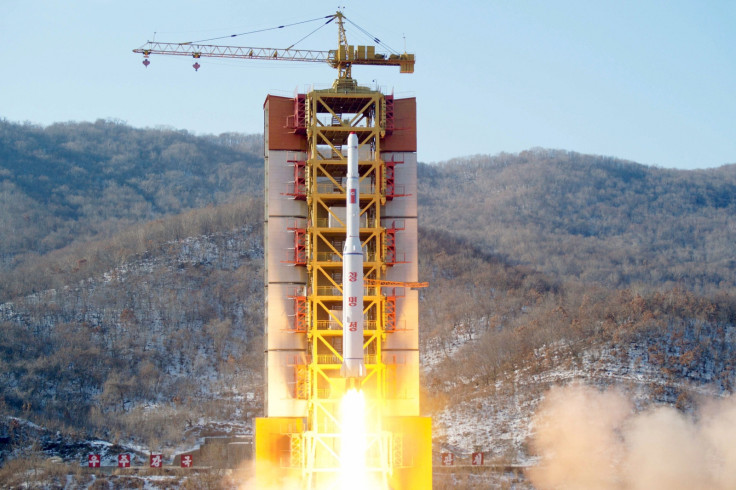North Korea's new satellite mission aims for the moon, and beyond
The North has asserted that international sanctions cannot stop Pyongyang's satellite programme to put its flag on the moon.

North Korea is now reportedly hoping to see its flag fly up on the moon in a decade's time. The space officials in the Kim Jong-un ruled nation are said to be working on a five-year plan to put more advanced satellites into orbit by 2020.
Aiming for the moon and beyond, a senior official at the North's version of NASA told AP news agency that no one, including the international sanctions, can stop Pyongyang's satellite mission for the next 10 years.
Hyon Kwang II from the North's National Aerospace Development Administration said: "Even though the U.S. and its allies try to block our space development, our aerospace scientists will conquer space and definitely plant the flag of the DPRK (Democratic People's Republic of Korea) on the moon."
He added that the five-year plan would be focus on launching earth observation satellites "to solve communications problems by developing geostationary satellites. All of this work will be the basis for the flight to the moon."
This would be the first geostationary communication satellite from the North, which is said to mark a major step forward for the country, technologically. According to Hyon, the universities in the country are also involved in their mission by expanding programmes to train rocket scientists.
However, Hyon asserted that the North's space mission goals are not a military program in disguise. He said it was the US that "militarised space" and that his country does "not need" to use the space program for ballistic missile development.
On 3 August, North Korea test-fired two missile, believed to be a medium-range ballistic one, of which one of it flew up to 1,000 kms before ending up in a Japan's exclusive economic zone off its coast.
According to experts, an unmanned moon mission by the North that too in a foreseeable near future is achievable. "It would be a significant increase in technology, not one that is beyond them, but you have to debug each bit," Jonathan McDowell, an astrophysicist from the Harvard-Smithsonian Centre told the news agency.
German analyst, Markus Schiller, an expert on North Korea's missiles told Associated Press that a geostationary satellite might work better for the country than a moon mission. "Judging from what I have seen so far with their space program, it will take North Korea about a decade or more to get to lunar orbit at best - if they really pursue this mission.
© Copyright IBTimes 2024. All rights reserved.






